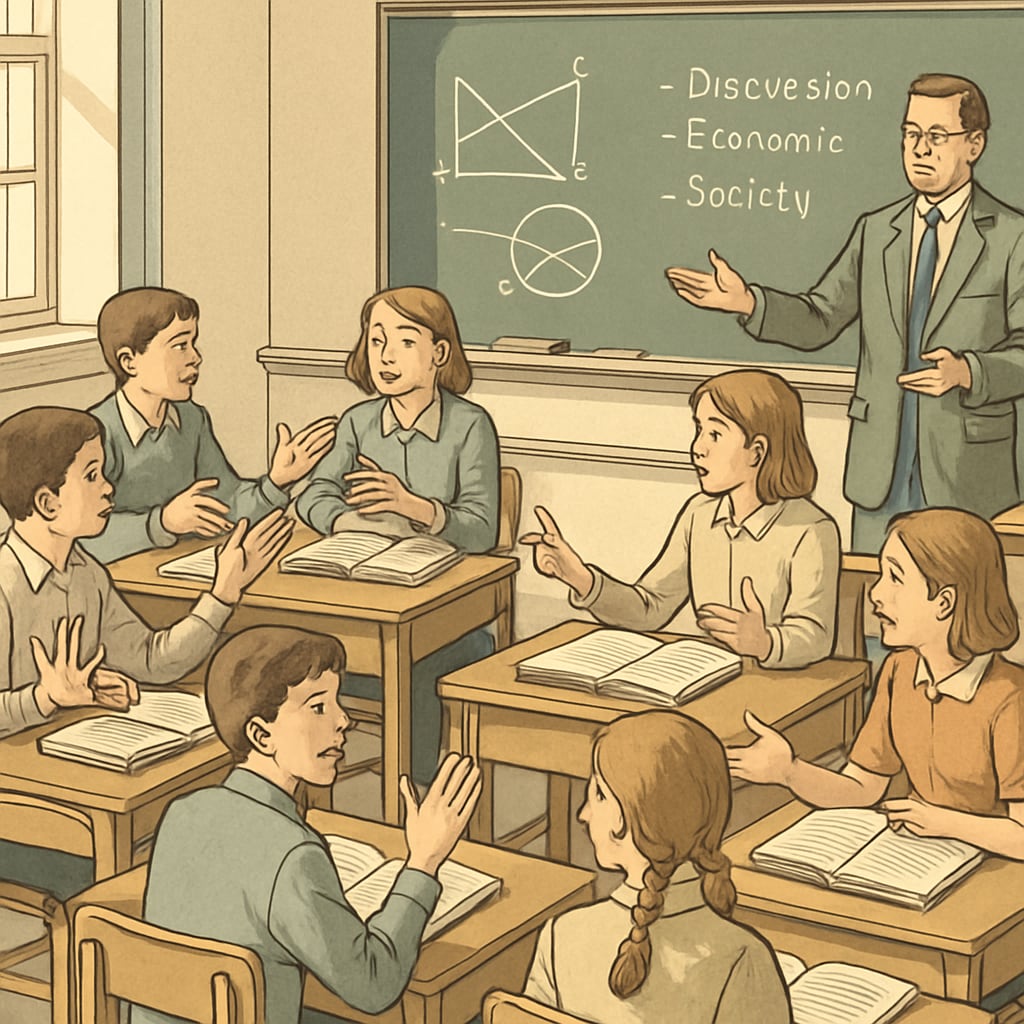Classical education, once the cornerstone of intellectual development and responsible for shaping influential figures like America’s Founding Fathers, has experienced a steady decline in modern K-12 educational systems. This shift raises critical questions about the historical changes, societal transformations, and evolving educational philosophies that have led to the abandonment of this time-tested model. In exploring these factors, we can better understand whether the wisdom of classical education has been unjustly overlooked in contemporary educational reform.
Historical Shifts Away from Classical Education
Classical education, rooted in the study of literature, philosophy, rhetoric, and logic, flourished for centuries as a means of cultivating critical thinking and moral character. This model emphasized mastery of foundational texts, intellectual debate, and the development of a well-rounded individual. However, the industrial revolution introduced a new paradigm. As societies began to prioritize economic growth and technological advancement, education systems shifted toward training workers for specialized roles rather than fostering broad intellectual development.
For example, the rise of public schooling in the 19th century marked a significant departure from classical models. Standardized curricula and vocational training became the focus, sidelining subjects like Latin, Greek, and philosophy. Over time, the emphasis on utility and measurable outcomes further marginalized the classical education approach. As a result, the profound benefits of nurturing creativity, ethical reasoning, and intellectual curiosity were often sacrificed for more pragmatic goals.

Societal Changes and the Evolving Needs of Education
In addition to historical shifts, societal changes have played a major role in the decline of classical education. The modern world demands skills that align with technological innovation, global communication, and rapid adaptability. Parents and policymakers alike have pushed for STEM (Science, Technology, Engineering, and Mathematics) education, which they view as essential for preparing students to compete in an increasingly complex job market.
While the emphasis on STEM education is understandable, it has inadvertently overshadowed the value of classical education. Skills such as critical thinking, persuasive communication, and ethical decision-making remain as vital as ever but are often deprioritized in favor of technical expertise. This imbalance has left students ill-equipped to navigate the moral and philosophical questions posed by modern society, further highlighting the gap left by classical education’s decline.

Educational Philosophies and the Push for Reform
Another factor contributing to the decline of classical education is the evolution of educational philosophies. Progressive education, which emerged in the early 20th century, emphasized experiential learning, individual interests, and democratic participation. While this approach has its merits, it often clashes with the structured and rigorous nature of classical education.
For example, progressive education tends to prioritize immediate, practical applications over long-term intellectual development. As a result, the disciplined study of classical texts and methodologies is viewed as outdated or irrelevant. This perception persists despite growing evidence that classical education fosters critical thinking and resilience—qualities increasingly recognized as essential in the 21st century.
Reform efforts often focus on integrating technology into classrooms and diversifying curricula, but rarely do they revisit the wisdom embedded in classical models. By failing to acknowledge the enduring value of classical education, modern reforms risk stripping students of the intellectual tools needed to address complex global challenges.
Reflections and Opportunities for Reviving Classical Wisdom
As we consider the reasons behind the decline of classical education, it’s important to reflect on what has been lost. The ability to engage deeply with texts, construct persuasive arguments, and grapple with moral dilemmas remains vital in an age of misinformation and ethical complexity. Classical education offers timeless principles that complement modern educational priorities rather than compete with them.
To revive classical wisdom, educators and policymakers could consider hybrid models that incorporate the best aspects of both classical and contemporary approaches. For example, pairing STEM education with classical subjects like philosophy and rhetoric could provide students with both technical skills and intellectual depth. Schools could also encourage interdisciplinary learning, allowing students to see the connections between science, literature, and ethics.
In conclusion, the decline of classical education is not merely a historical footnote but a pressing issue that affects the intellectual and moral development of future generations. By recognizing the strengths of classical models and integrating them into modern K-12 systems, we can equip students to navigate the complexities of the modern world with wisdom and confidence.
Readability guidance: This article uses short paragraphs, transitional phrases, and occasional lists to enhance readability. Passive voice and long sentences are minimized to ensure clarity and engagement.


